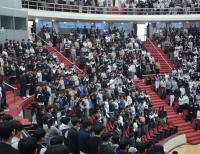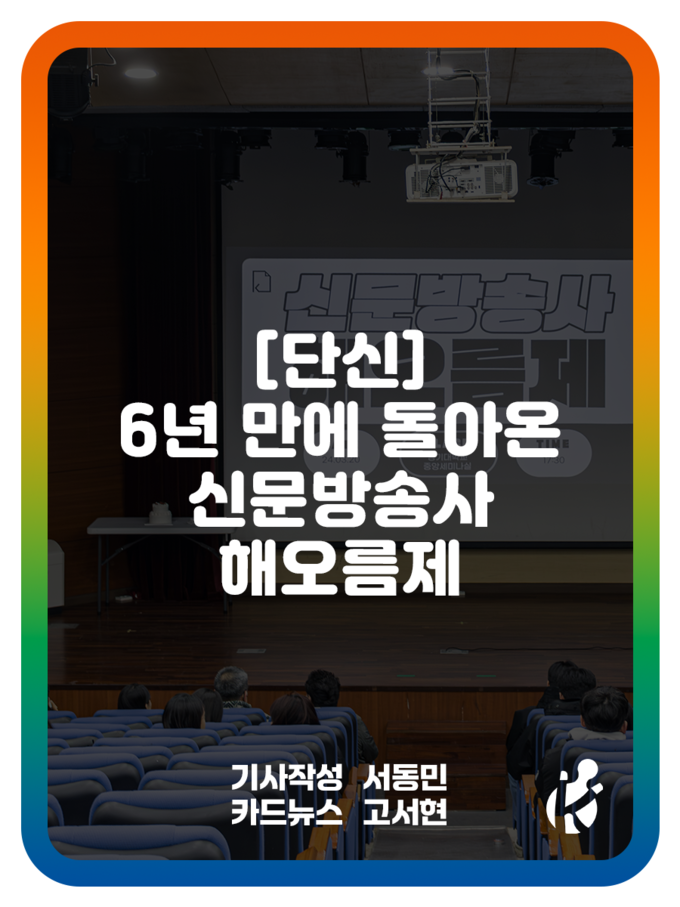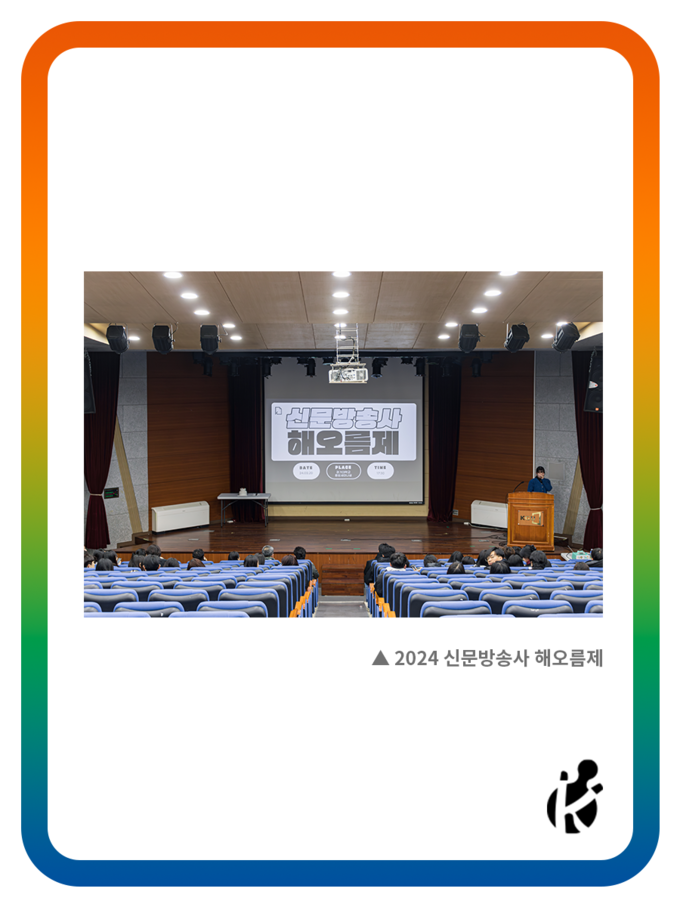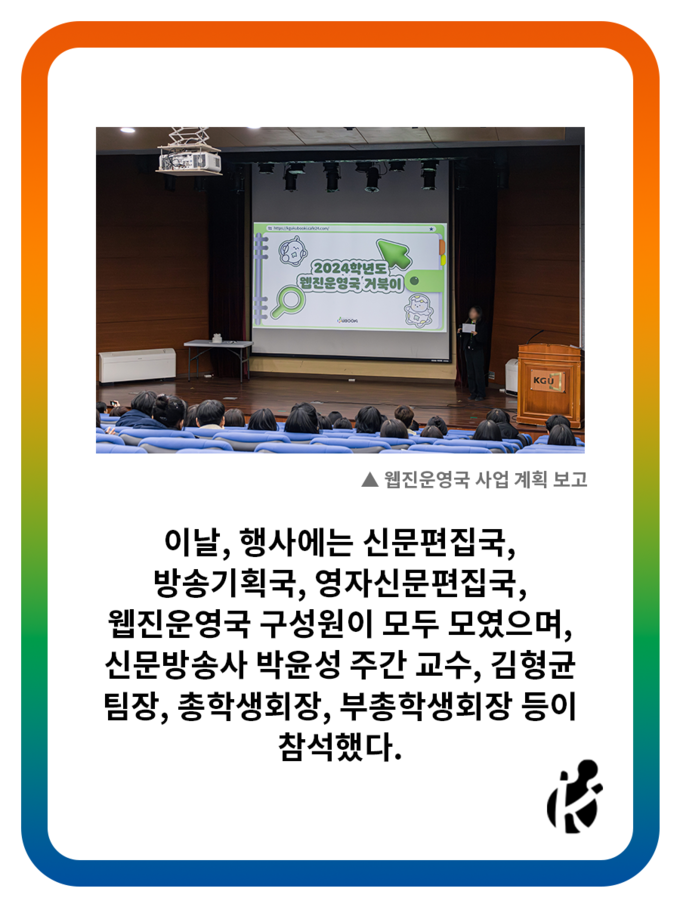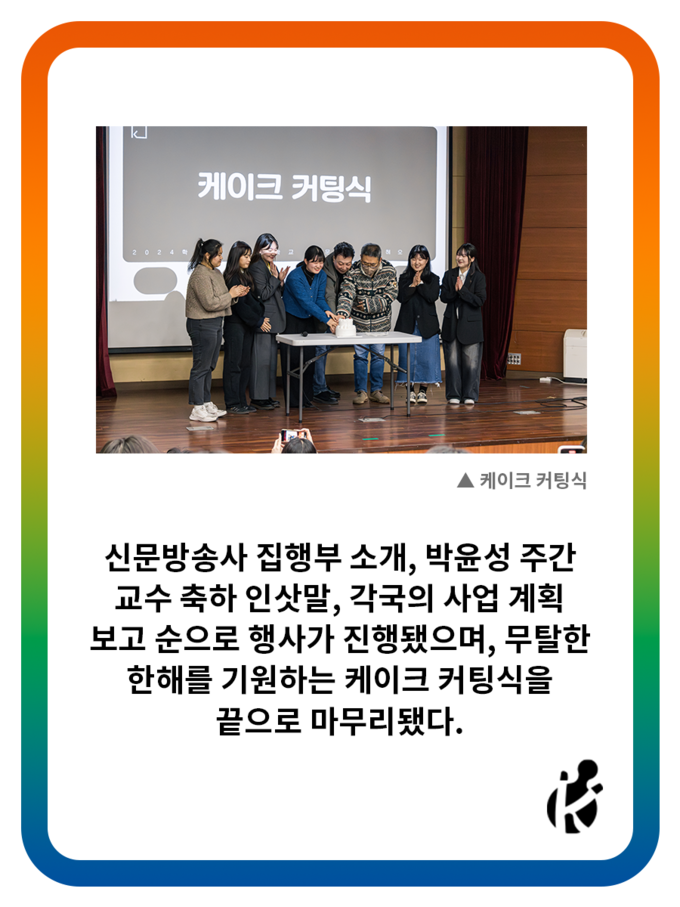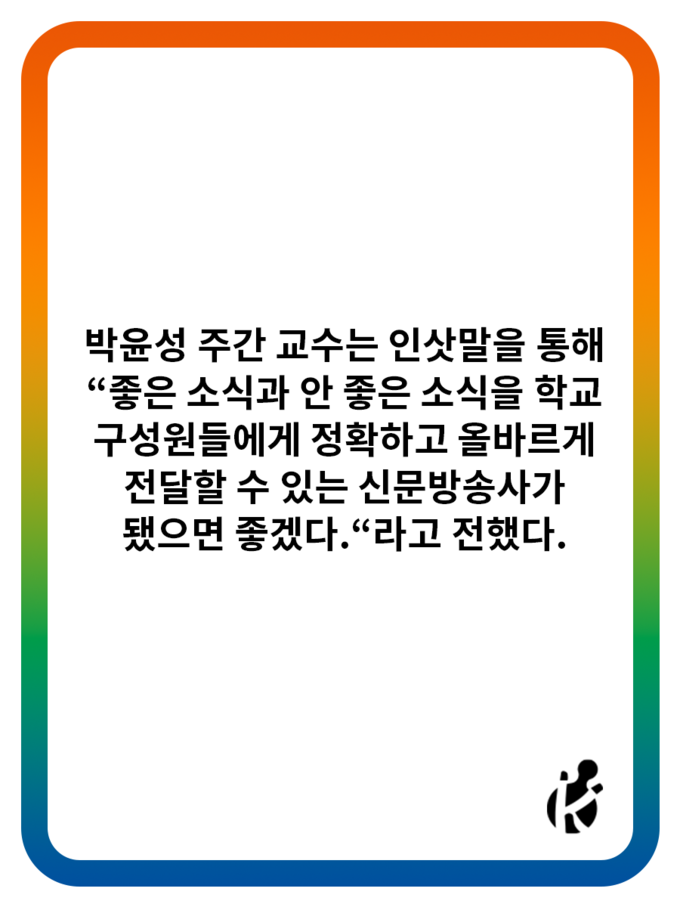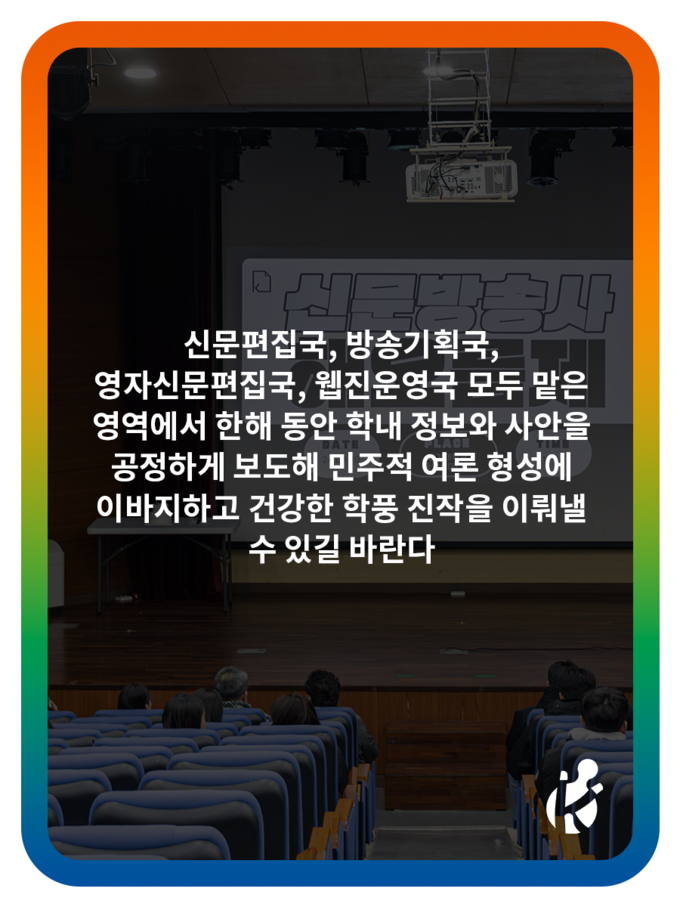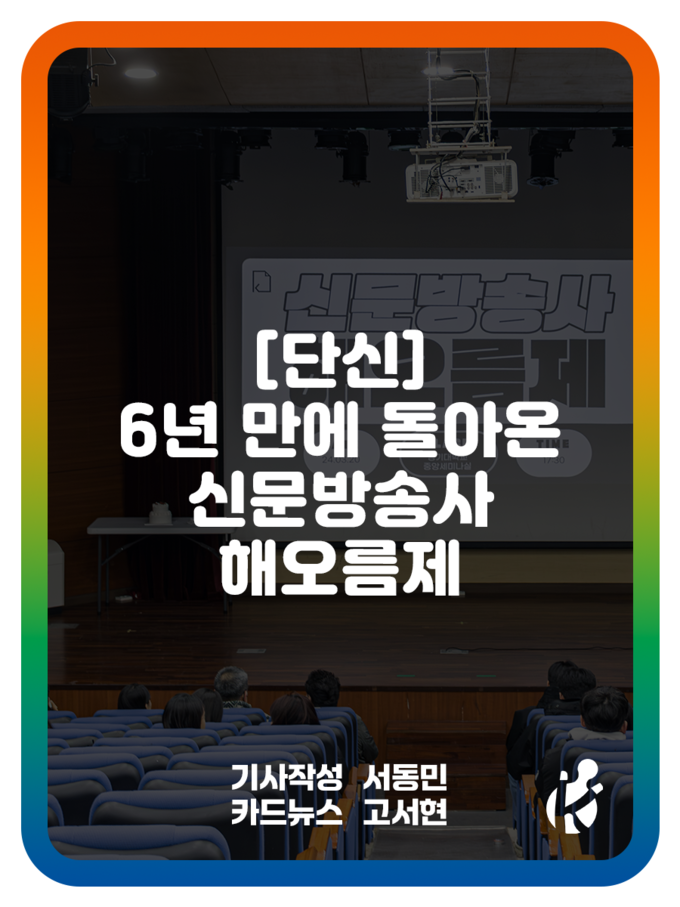If you received an offer to enter any university you wanted to go to, where would you choose to go? Perhaps, you would choose a famous university or a university that guarantees employment. Maybe, the majority of people would decide similarly. This shows that what the identity of a university means in people’s cognition. The reason why people prefer a university that has higher rates of employment is because these days it is actually difficult to find a job. The youth unemployment rate remains stubbornly high and recruiters keep demanding higher qualifications. To respond to this situation, universities have reinforced measures to help students prepare for employment. However, the side effect of this policy is that the ultimate functions which a university is responsible for have been weakened. To top it off, there are some cases in which success has been accomplished outside of university. This has led universities to face a season of trying to find what they can provide. As they stand at a crossroads of deciding where to go, what should a university pursue? On 1828, in America, Yale University published the “Yale Report” shaking the educational world. The point of the report was that a university has to recover its original role which was to focus on mental discipline and classical education. In detail, it was necessary to cultivate the abilities of critical thinking, reasoning and finding solutions to problems. At this moment of crisis marked by a skewed university role, what about restoring the essence of the university as the report insisted? The Pharos examines the university’s identity now and in the future in this article.
Until these days, the role and function of the university had not changed since the Middle Age when the university was established. Pursuing pure learning, researching, and passing down knowledge were the primary goals of the university. However, what current university focuses on is different from the past, and it diminish its long-standing main function. Culture leading function is the function it firstly lost. Until modern times, or perhaps until even recently, universities have played a role as institutions that led the culture of the times. University students examined important social problems, sought to redress unfair things, and studied and discussed unusual phenomena. As members of the late 20th century university, they didn’t stop discussing and arguing about what is right and what is wrong. Individuals thought, considered, asked questions, and searched for answers while attending university. The university had a responsible function that was reminiscent of the Agora of ancient Greece. However, what is the point of universities nowadays? We can find that the answer is preparing for “employment,” without searching very hard. It is not wrong to prepare for the future through a university education, but the mindset of current universities and students is too restricted for employment. By changing its focus, the university’s aforementioned role has virtually disappeared. The current university exists in an ambiguous state, and cannot explain its reason for being. However, countless freshmen still enter a university and high schoolers with bloodshot eyes give an extraordinary effort to enter to university. Pharos interviewed a student to discover more about the state of the current university. The following is an interview with Park Hyo-jin, a student in the Corrections and Protective Science Department.
Interview of Park Hyo-jin
Q. What did you think university education was before you entered, and how has your view changed after being university student, and what is the reason?
A. Employment was the only purpose that I had when entered university. Therefore, I thought there only were courses for employment at university before entering the school. However, after entering university, I have come to think that the meaning of a university education depends on an individual’s will and behavior. For example, I built new relationships, and changed my characteristics through club activities. Based on my case, I have come to think that the education of a university is not limited to employment preparation, while rather it transforms individuals.
Q. What efforts do you think individuals and universities should make to discover why universities exist?
A. As I said in answer to the previous question, I think the purpose of education is to change the individual’s selfconcept. Therefore, I hope to create an atmosphere in which more attention is paid to students, as if they were the mentees of professors. Also, I hope that we can create an environment in which we can think about and experience many things.
As indicated in the interview, there are many students hoping to enter university who only want to improve their chances of employment. This is not strange if you understand the unemployment crisis. The university has been forced to set its direction according to society’s demands, and as a public institution, so it is reasonable to meet those demands. Thus, the university has taken the role of an employment preparation institution based on the contemporary request of society. However, as the interviewee said, there is more than that to a university education. According to the interviewee, “the purpose of education is to provide students with the opportunity to transform themselves,” The nature of the transformation might be different depending on one’s particular reasons and experiences. You can think about or find things nobody ever thought about or found. You can also try things that nobody ever tried. It is implied that the interviewee hopes for these things to be possible. The reality, however, makes us doubt that even wishing for this is unrealistic. The youth unemployment rate and students’ competitive spirit show that there is a choking pressure that makes students unable to look any thing except employment. The most striking reason is the rate of unemployment. Especially, the youth generation has been pushed to worry about it, even before entering university. According to the statistics published by the National Statistics Office, in December 2018, the rate of unemployment was 8.6%, which means specifically that 366,000 persons were unemployed. In this situation, activities aiming for critical thinking and reasoning are not preferred, instead only activities which bring employment result are favored. How much an activity improves my ability and value at a recruiting office is more important than how the learning and experience can change me as an individual. In these circumstance, as was mentioned, the meaning of the university is pretty vague, since preparation for a job has not a distinctive function of the university. Moreover, the number of people who are trying to carve out their own way and cultivate ability without going to university is increasing. In short, the university today has to create a better identity than just being a place to prepare for a job. Then what is the reason the university exists? To collect a professional opinion, the Pharos interviewed a professor in the History Department, Kim Ki-bong.
Department of History, Professor Kim Ki-bong
Q. What do you think is the reason for the existence of the university?
A. There is no single answer to this question. Current universities have to examine this issue to find out the answer. I think a number of universities will go down if they cannot read the trend of the century. In the past, universities did a job of leading culture and each century. The reason why universities could exist from the Middle Ages was that they helped to develop modern civilization. However, universities can’t do that job as other organizations that lead culture have emerged. It's a time of rapid change, and as I said earlier, I think universities should be aware of the direction of change.
Q. What do you think about the fact that current university students are using university as an institution they go through to get a job, and what is the reason this situation happened?
A. Even before coming to university, a society of competition was formed. This culture cannot be changed just because one came to university. Most students came here as a result of the competition in the rankings, and now it’s hard to make a big difference in the rankings just by testing in the system. To escape this social system, maybe university is the best chance. Adapting to competition world is not different from following the direction that everyone else goes. On the way, it is difficult to foster individual development and achievement. Unfortunately, students are trying to go the way that others went since it seems secure. Instead of doing this, how about finding out what you are interested in and in what areas you are good? Shouldn’t university education provide such education? There is a developmental process in education. The first step is the search for the right answer, the second is the training that builds the ability to solve problems, and the third is the education to help one find problems with solutions. Now is the era one has to walk his own way. You must be able to find out what you are interested in and what you are good at, what problems exist in your area of interest and what you will suggest to solve the problems. It’s at university where this is possible. Universities are not yet fully providing education that helps students to find their own problems and find the correct answers. Then I think there should be a change starting from students.
Q. Then, why do you think many students can’t search for their ways?
A. First of all, universities don’t teach students to choose their own paths, so this has to be rectified. The university system has to change first, and students have to try to accept this idea. Students often ask the professor how he or she should live, and since the professor’s time is the most familiar to him or her, it’s hard to tell the next generation exactly how to live. Therefore, students must think about how they will live their lives and set a direction to challenge themselves during university. The changes in the university system are a matter of great concern to professors. The system is better than before, but we’re still struggling. The system will continue to improve, but before that, I hope students will think about it and discover ways to improve.
Professor Kim said the university is doing a different job compared with the past, Also, he couldn’t define what that job is, and claimed that it is important that we find out the reason for the existence of the university. He said the way to escape the full of competition is not competing at the same area. During the interview, he also talked about Steve Jobs as an example. The increasing number of successful people without university degrees means that universities would not stand firm anymore without finding out the discriminatory roles and functions. What kind of purpose should universities have? Current university students are lining up to take the proposed path. That’s because we know what’s safe and secure. However, you might have to consider taking risks to find new things, but it is obvious that you can’t try them quickly because of the heavy weight of failure. Then, shouldn’t universities help students find what they like to do and do well, and shouldn’t universities support students by covering up when they find what they really want and be well? Yes, universities should provide a broadly based education so that student can find the right path for themselves and bravely walk along it. University education should open up opportunities for diverse experiences and create safety zones for new attempts. Wouldn’t this be a discriminatory function and role for universities?
In Kyonggi University, there is a department in charge of employment, the Human Resources Development Department. This department monitors the flow of employment, so it is crucial to listen to the staff there. The Pharos interviewed team manager Hwang Jung-duk.
Interview, Manager Hwang Jung-duk
Q. What do you think about the job preparation function of the university?
A. The university surely has the function of preparing students for employment. As a final institute of education that raises versatile human capital, related education is practically needed. There is no fixed way to prepare for employment, but students raised in the Korean educational system and environment have been conditioned to aim for such an answer. If there was the time, opportunity and motivation to subjectively look back and ahead at life, it would be great. However, usually not many students have the spare time to do that because of other work. Therefore, “self-achieved employment” is practically difficult. This is why the school has to have the function of preparing students for employment. Nevertheless, it is worrisome that this function damages the status of the university. Just consider it as one of the many functions of the university.
Q. What do you think the identity of the university is today? How do you feel about the school and students being employment-oriented?
A. As mentioned above, the university fosters the development of versatile human capital, so an education considering those needs is required. Commonly known as the university’s essence, academic research and exploring for the truth are still important, while it also needs to fulfill the role of the educator of practical skills and knowledge. In other words, if employment-oriented education consists of competency cultivating activities which are asked for by industries, corporations and society, encouraging this is never wrong. Frankly speaking, students need to participate in more activities for developing competency. What competency means here is not only acquiring practical skills and knowledge but also obtaining thinking ability, perspective, aims, broad vision sight and liberal arts-related knowledge.
Q. Considering the social trend these days, preparing for employment during the university period cannot be said to be wrong. Then, how should we look at the ultimate functions of the university, which are pure learning and research?
A. Steve Jobs told a story in an interview. At one point in the story he said, “Apple is at the intersection of the liberal arts and technology.” The liberal arts in this story refers to what we sometimes call the humanities. In fact, the liberal arts include a very large number of disciplines, such as geometry, mathematics, esthetics, humanities, natural science and social science. I think a university has to cover these disciplines and provide relevant education for interested students. I guess a university needs to pursue a wide range of education. A major should not determine the boundary of learning. Rather than that, it is suggested that students go through various academics and exchange opinions with a large amount of people. Moreover, in terms of academic pursuits, students are asked to participate in research with passion and ingenuity because both professors and students are equally important. If we talk about employment, isn’t it better to be a well-educated and highly motivated person given the current trend? If employment is focused on too much and the paradigm of society remains fixed on ranking and competitive advantage, that direction has a problem. Harmony and balance are required in the area of the university’s function and role. First, society needs to change its paradigm, but that rarely happens. Then, change might start among individuals.
Philosopher R.S. Peters stated, “Education, unlike training, is not just for acquiring specialized functions, actions, thinking styles, etc, but it is raising cognitive perspective on wide range of subjects.” Simply, through university education, the range of knowledge expands and one’s world view is elaborated. He did not deny the importance of training, but weighted education more highly. To summarize his statements and the interview, a university and the education it provides should enlarge the student’s ability to reason and consider. Then, following contemplation is how to use knowledge and skills, why to use them, for whom to use them and what result will come. Moreover, if one finds his interest and talent, a university needs to help him walk that way by teaching how to actually exploit relevant knowledge and skills. Big and small challenges will be helpful in finding one’s interest and talent. If a university wants to change in the way suggested above, the culture on campus is the first thing to alter. Culture will not be reformed easily. Provided that a university builds networks and offers special lectures, it is feasible to reform culture. Besides culture, the core of education has to change. As mentioned in the interview, broadly based education, communication and competency are significant. Recently, majors teaching skills like those taught in the College of Engineering are prevalent. However, the liberal arts should rise again with maturity. The knowledge and skills of the liberal arts are an
essential part of a university. Given that ability is equal to knowledge and skills, the foundation needed to activate ability begins with the liberal arts. When these three are nurtured harmoniously, competency manifests. Thus, in a university, what about refocusing on education that cultivates competency beyond just fragmentary academic education? Isn’t it the purpose of the university to do this?
The purpose of the university is changing and adapting in response to changes in the new century’s trends. In an era of rapid change like this, it is necessary for universities to establish new functions and roles with greater reflection and judgment. Furthermore, the emergence of people who are achieving success without going to university is encouraging reformulation of the meaning of reasons for the university’s existence. However, the meaning of the university is something that all its members must find together. Collectively, the interviews and other information provided in the article suggest the reasons for the university’s existence which are twofold. The first is to train, support and establish a safety zone for individuals’ interests and talents. In other words, it should be a “university of energy.” The second is to create an environment in which the knowledge and skills accumulated through education and experience can be activated to achieve competence. In other words, it should also be a “university of fire”. With this orientation, universities will not be swayed in a short period of time even if the function of employment preparation is weakened. However, change is required of not only universities, but also university members and students who are the owners of the schools. If it is the task given to universities to create an educational environment to develop and enhance the ability to reason and think, then efforts to develop and enhance the educational environment with enthusiasm is the task given to individuals. Listen to special lectures at school or outside as the first step in your personal efforts, or experience your interests and study them. Why don’t you try to find your own path rather than just lining up behind someone in the short time given to you as a university student?
Planning Editor LEE GAEUN antonia0504@naver.com
71st Reporter PARK SINUI dean0305@naver.com
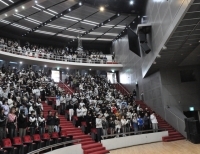 What Happened in KGU? : 수원캠퍼스 학생총회 편
On April 4th, a general meeting of students was held in the Tele-convention center at the Suwon campus. The contents were the same as the general meeting of students in the Seoul campus: the first part was for agenda announcement, the second part was about the Membership Training for whole university, and the third part was simple Q&A time. In the first part, the agendas were all the same as the ones for the Seoul campus, and the result of the ...
What Happened in KGU? : 수원캠퍼스 학생총회 편
On April 4th, a general meeting of students was held in the Tele-convention center at the Suwon campus. The contents were the same as the general meeting of students in the Seoul campus: the first part was for agenda announcement, the second part was about the Membership Training for whole university, and the third part was simple Q&A time. In the first part, the agendas were all the same as the ones for the Seoul campus, and the result of the ...

 [타 대학보 축사] 늘 그랬듯, 묵묵히
[타 대학보 축사] 늘 그랬듯, 묵묵히
 [와이파이] 큰 박스에 달랑 물건 하나, 과대포장 규제 정책 시행은 언제쯤
[와이파이] 큰 박스에 달랑 물건 하나, 과대포장 규제 정책 시행은 언제쯤
 [문화산책] 이 세계는 멋져 보이지만 모두 환상이야
[문화산책] 이 세계는 멋져 보이지만 모두 환상이야
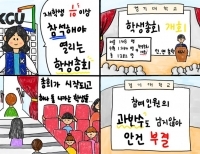 [네컷만화] 학생총회
[네컷만화] 학생총회

 목록
목록





